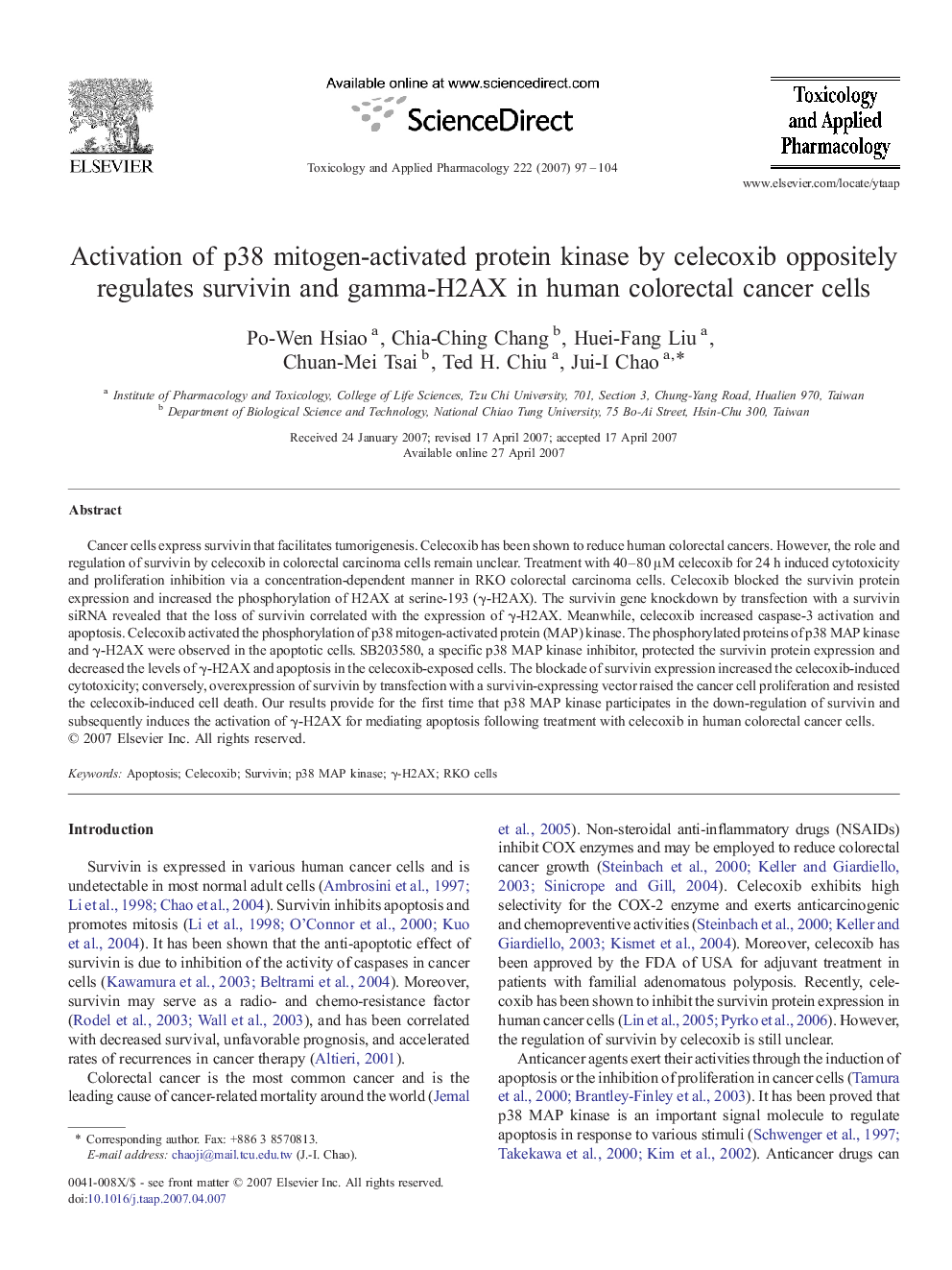| Article ID | Journal | Published Year | Pages | File Type |
|---|---|---|---|---|
| 2571242 | Toxicology and Applied Pharmacology | 2007 | 8 Pages |
Cancer cells express survivin that facilitates tumorigenesis. Celecoxib has been shown to reduce human colorectal cancers. However, the role and regulation of survivin by celecoxib in colorectal carcinoma cells remain unclear. Treatment with 40–80 μM celecoxib for 24 h induced cytotoxicity and proliferation inhibition via a concentration-dependent manner in RKO colorectal carcinoma cells. Celecoxib blocked the survivin protein expression and increased the phosphorylation of H2AX at serine-193 (γ-H2AX). The survivin gene knockdown by transfection with a survivin siRNA revealed that the loss of survivin correlated with the expression of γ-H2AX. Meanwhile, celecoxib increased caspase-3 activation and apoptosis. Celecoxib activated the phosphorylation of p38 mitogen-activated protein (MAP) kinase. The phosphorylated proteins of p38 MAP kinase and γ-H2AX were observed in the apoptotic cells. SB203580, a specific p38 MAP kinase inhibitor, protected the survivin protein expression and decreased the levels of γ-H2AX and apoptosis in the celecoxib-exposed cells. The blockade of survivin expression increased the celecoxib-induced cytotoxicity; conversely, overexpression of survivin by transfection with a survivin-expressing vector raised the cancer cell proliferation and resisted the celecoxib-induced cell death. Our results provide for the first time that p38 MAP kinase participates in the down-regulation of survivin and subsequently induces the activation of γ-H2AX for mediating apoptosis following treatment with celecoxib in human colorectal cancer cells.
